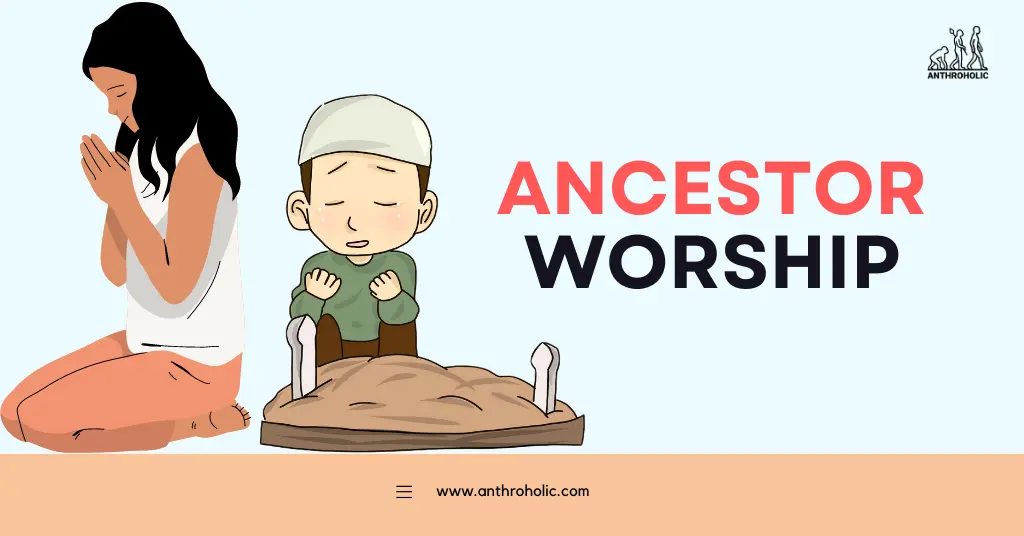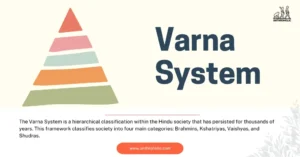AI Answer Evaluation Platform Live Now. Try Free Answer Evaluation Now
Ancestor Worship
Ancestor worship, also referred to as ancestor veneration, refers to the ritual practice of showing respect and dedication to one’s departed family members. This custom, deeply rooted in many cultures globally, manifests in various forms ranging from ceremonies and rituals to monuments and daily offerings.

Historical Overview
The practice of ancestor worship is ancient and widespread. It has been recorded as far back as the Neolithic period, evident in archaeological findings such as tombs, burial goods, and ancestral shrines [1].
The motivation for ancestor worship is multifaceted, including:
- Respect and love for the deceased.
- Fear of the spirits of the dead.
- Belief in the continued existence and power of the ancestors to influence the living.
Ancestor worship is not uniform but rather adapts to its cultural environment, making its manifestations as varied as the cultures that practice it [2].
Geographic Distribution of Ancestor Worship
| Region | Prominent Cultures Practicing Ancestor Worship |
|---|---|
| Africa | Akan, Yoruba, Zulu |
| Asia | Chinese, Japanese, Vietnamese |
| Oceania | Maori, Hawaiian |
| Americas | Maya, Inca, Native American Tribes |
Ancestor worship has been and continues to be practiced in various forms worldwide. It is particularly prominent in East Asian cultures, such as those of China, Japan, and Vietnam, where annual festivals honor the dead, and domestic ancestral altars are commonplace [3].
Influence on Society and Religion
Social Impact
Ancestor worship significantly impacts the societal structure and norms of cultures that practice it:
- Family Hierarchies: Ancestor worship often reinforces familial hierarchies and generational respect, as it is usually the responsibility of the eldest son to perform ancestral rites [4].
- Ethics and Morality: The ancestors’ perceived presence and authority often serve as a moral compass, guiding the behavior of descendants.
Religious Impact
Ancestor worship also intertwines with and influences religious beliefs and practices in various ways:
- Syncretism: In many cultures, ancestor worship coexists with and complements other religious practices. For example, in China, Confucianism, Taoism, and Buddhism coexist with ancestral veneration.
- Afterlife Beliefs: Ancestor worship often reflects a culture’s views of death and the afterlife. The rituals associated with ancestor worship, from funerals to ongoing offerings, indicate a belief in an ongoing relationship between the living and the dead.
Conclusion
Ancestor worship, a practice as old as humanity itself, continues to play a significant role in numerous cultures around the globe. This enduring tradition speaks volumes about our shared human need to honor, remember, and stay connected with our forebears, a need that transcends geographical and cultural boundaries. Its manifestations, while differing across cultures, universally affirm the interdependence of the living and the dead, of past, present, and future.
References
[1] Renfrew, C., & Bahn, P. (2016). Archaeology: Theories, Methods, and Practice. Thames & Hudson.
[2] Klass, D., & Goss, R. (1999). Dead but not lost: Grief narratives in religious traditions. AltaMira Press.
[3] Watson, J. L., & Rawski, E. S. (1988). Death Ritual in Late Imperial and Modern China. University of California Press.
[4] Mbiti, J. (1990). African Religions & Philosophy. Heinemann.




